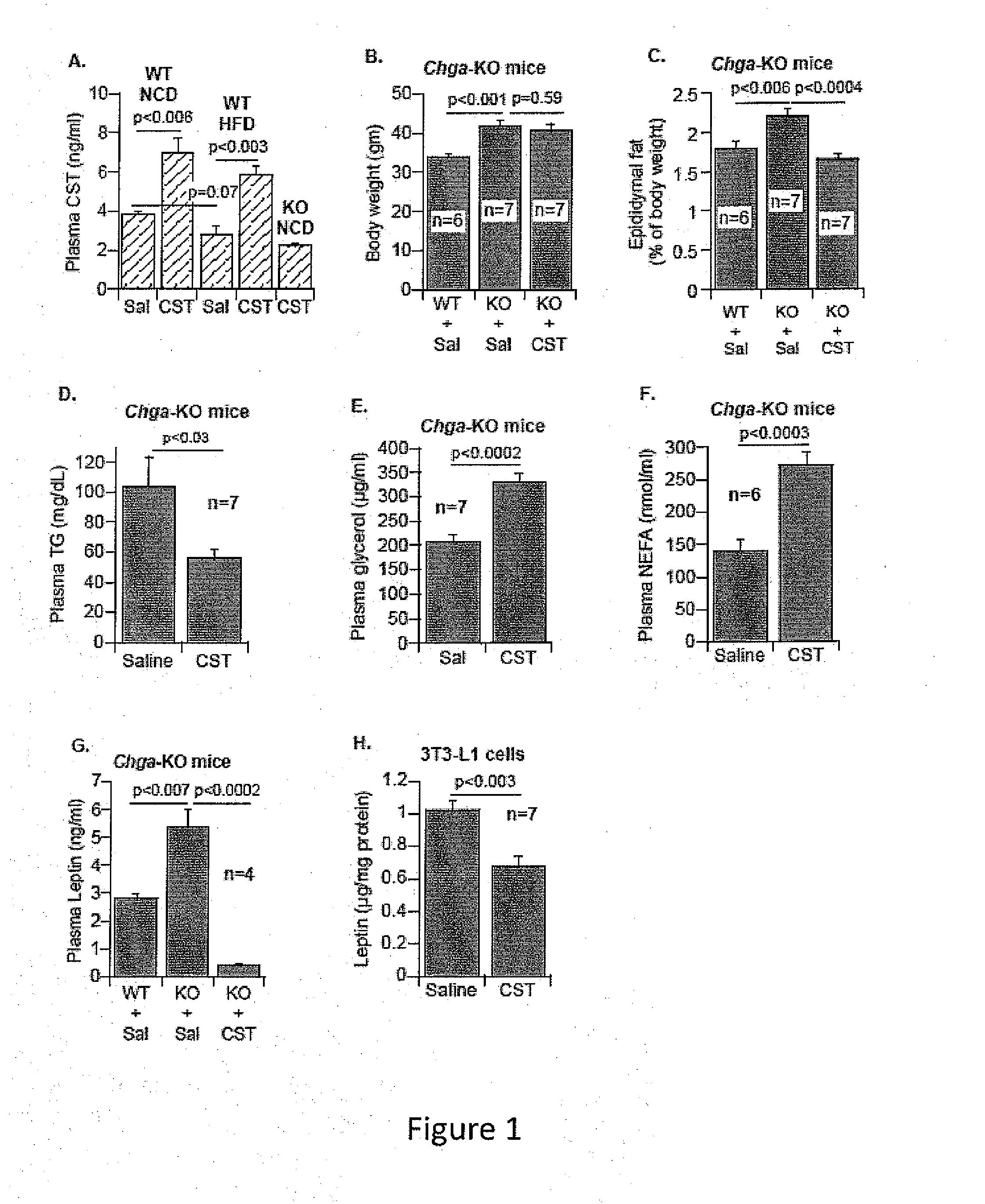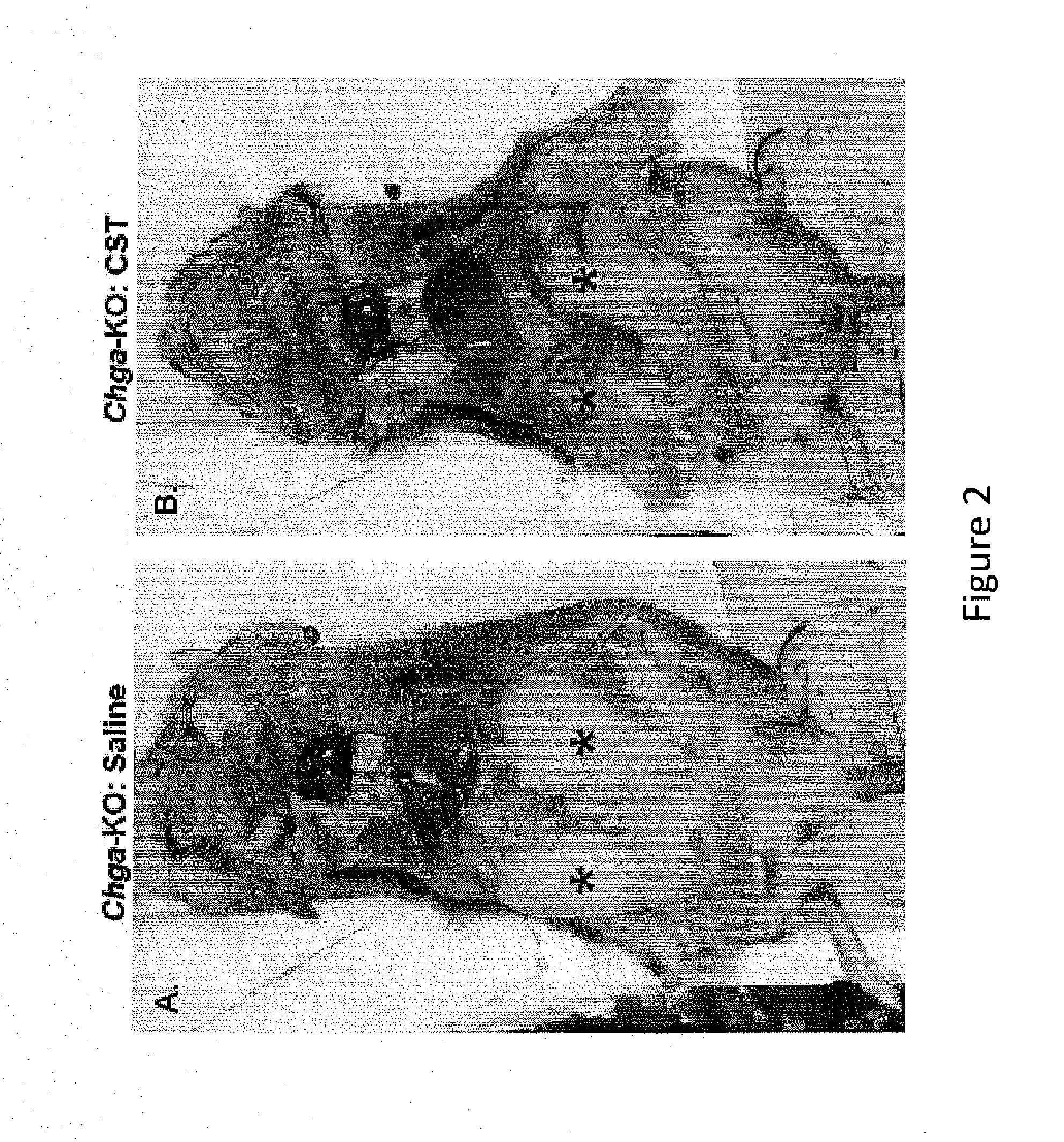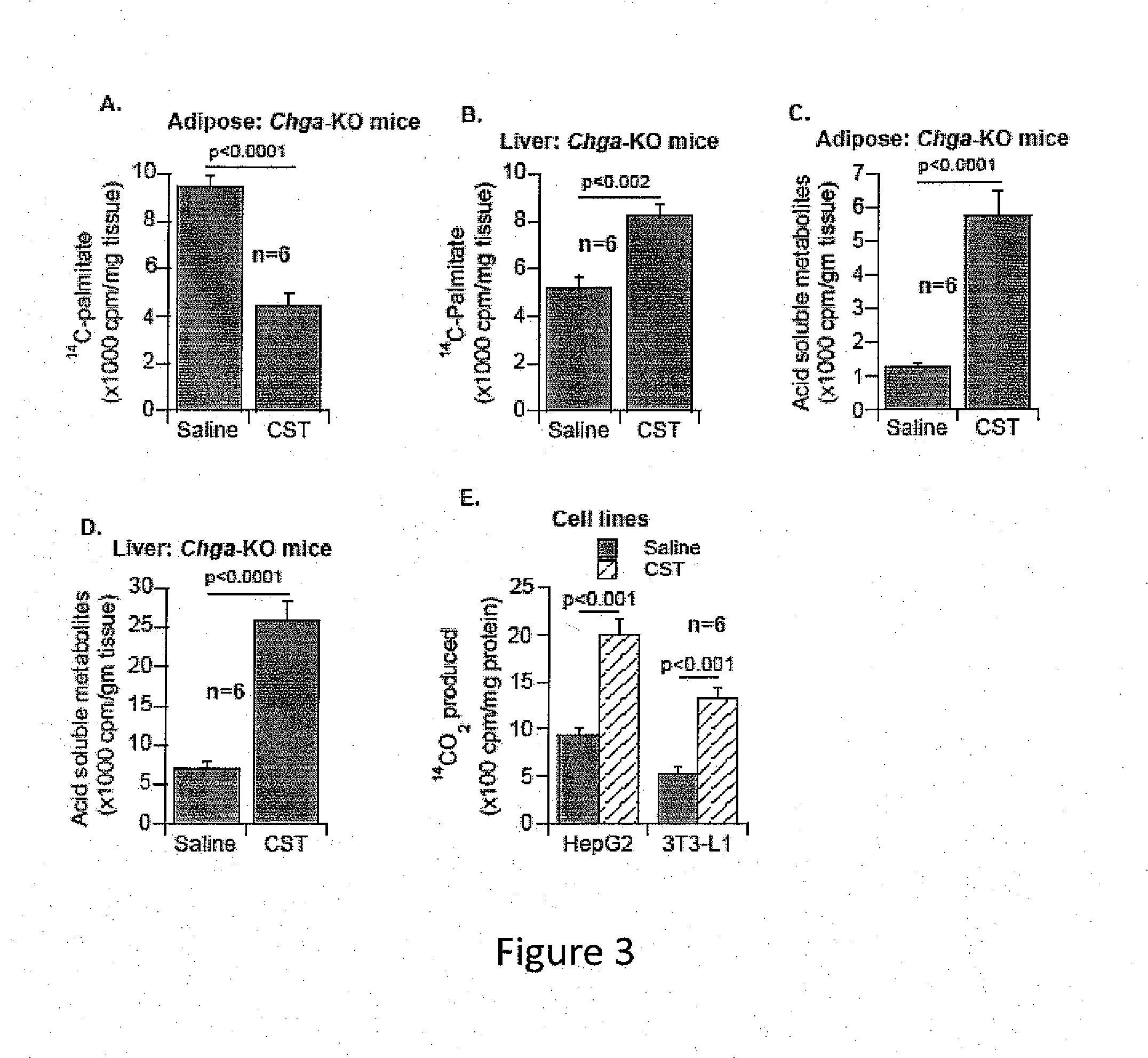Methods for promoting lipolysis and oxidation in liver and adipose tissue using catestatin
a technology of catestatin and lipolysis, which is applied in the direction of peptide/protein ingredients, extracellular fluid disorder, metabolic disorder, etc., can solve the problems of dramatic lean phenotype, achieve the effect of reducing the amount of circulating, promoting lipolysis and oxidation of released fatty acids, and reducing the weight of adipose tissu
- Summary
- Abstract
- Description
- Claims
- Application Information
AI Technical Summary
Benefits of technology
Problems solved by technology
Method used
Image
Examples
example 1
References for Background and Example 1
[0196]1. Winkler, H., and Fischer-Colbrie, R. (1992) Neuroscience 49, 497-528[0197]2. Taupenot, L., Harper, K. L., and O'Connor, D. T. (2003) New Engl J Med 348, 1134-1149[0198]3. Montero-Hadjadje, M., Vaingankar, S., Elias, S., Tostivint, H., Mahata, S. K., and Anouar, Y. (2008) Acta Physiol (Oxf) 192, 309-324[0199]4. Tatemoto, K., Efendic, S., Mutt, V., Makk, G., Feistner, G. J., and Barchas, J. D. (1986) Nature 324, 476-478[0200]5. Sanchez-Margalet, V., Gonzalez-Yanes, C., Najib, S., and Santos-Alvarez, J. (2010) Regal Pept 161, 8-14[0201]6. Aardal, S., Helle, K. B., Elsayed, S., Reed, R. K., and Serck-Hanssen, G. (1993) J Neuroendocrinol 5, 405-412[0202]7. Mahata, S. K., O'Connor, D. T., Mahata, M., Yoo, S. H., Taupenot, L., Wu, H., Gill, B. M., and Parmer, R. J. (1997) J Clin Invest 100, 1623-1633[0203]8. Mahapatra, N. R., O'Connor, D. T., Vaingankar, S. M., Sinha Hikim, A. P., Mahata, M., Ray, S., Staite, E., Wu, H., Gu, Y., Dalton, N., K...
example 2
[0260]In this example, we continue to study the physiological and molecular consequence of supplementing catestatin (CST) in our mouse knockout model of chromogranin A in which all chromogranin A-derived peptides are absent including pancreastatin, vasostatin and catestatin in the Chga-KO mouse. In addition, we created a knockout mouse in which only CST peptide is lacking from the knockout animal, CST-KO mouse, while the other CHGA-derived peptides, such as PST and vasostatin are present.
CST Acts as an Insulin-Sensitizing Peptide.
[0261]In studying insulin sensitivity, we found chromogranin A (human CHGA / mouse Chga) knockout (Chga-KO) mice to be sensitive to insulin (1) and such sensitivity was protected even after high fat diet (HFD: 60%) induced resistance to insulin (unpublished data), Supplementation of anti-insulin pancreastatin (PST: CHGA250-301) to HFD-fed Chga-KO mice reversed the phenotype implying that deficiency of pancreastatin (PST: CHGA250-301) and not the deficiency of...
example 3
[0276]Scheme 1
[0277](FIG. 18) is a working model of CST regulation of key endocrine functions in part through modulation of leptin receptor (Ob-R) and adrenergic receptor (ADR) and is supported by examples 1 and 2. Computer-assisted sequence alignment and molecular dynamics (MD) simulations of Leptin and CST followed by extensive protein-protein docking studies revealed potential interaction of CST with the Ob-R. Analysis of structures of leptin and CST showed that these two molecules are capable of binding to the same domain (Ig-like domain) of Ob-R. This means, CST could compete with leptin and may also exhibit partial leptin-like agonist activity.
PUM
| Property | Measurement | Unit |
|---|---|---|
| Mass | aaaaa | aaaaa |
| Sensitivity | aaaaa | aaaaa |
Abstract
Description
Claims
Application Information
 Login to View More
Login to View More - R&D
- Intellectual Property
- Life Sciences
- Materials
- Tech Scout
- Unparalleled Data Quality
- Higher Quality Content
- 60% Fewer Hallucinations
Browse by: Latest US Patents, China's latest patents, Technical Efficacy Thesaurus, Application Domain, Technology Topic, Popular Technical Reports.
© 2025 PatSnap. All rights reserved.Legal|Privacy policy|Modern Slavery Act Transparency Statement|Sitemap|About US| Contact US: help@patsnap.com



